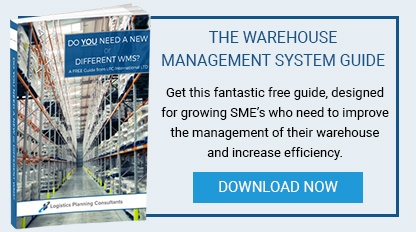
The King of Egypt 4,000 years ago would have asked “How much grain do we have in storage?” Heads would have rolled if he could not get a reasonably accurate answer (grain lasts about 4 years in good storage).
The Egyptians had a simple WMS based on stock inwards and outwards, transfers and wastage, recorded on clay tablets or on the walls of their granaries. Any type of storage facility simply has to have a warehouse management system, WMS or otherwise it is nothing more than a disorganised asset dump.
Of course, the question here really is –what can you achieve, can you maximise efficiency and profitability without a modern day computerised WMS? The simple answer in the vast majority of cases is No. Computerisation has delivered analytics and in-depth reporting about almost any aspect of warehousing and stock control that you can imagine. The potential level of detail can be blinding, and that is a very good reason to seek expert advice before plunging in. Investing in the wrong tool can be as costly as not adopting computerised systems at all. We don’t supply WMS software, which means we are completely impartial/agnostic as regards vendors but we can tell you the vital functionalities that your individual and unique organisation must demand.
Any competent WMS will deliver these basic functions:
Transparency of operating costs - Space, labour and utilities are the Big 3 P&L costs that a business deducts from its warehousing bottom line. Space costs include facilities maintenance, rent & rates and can be very significant
Labour costs can be optimally balanced over busy and quieter times. There is nothing worse than having under-manning when a surge occurs, or over-manning when times are quiet. Both instances are a drain on operating costs for temporary staffing. A good WMS supports your sales and operational profiles. That sounds an awful lot simpler than it is in reality because sales patterns, for instance, never remain static or repeat exactly from year to year. Product profiles and customer profiles are dynamic – knowing the triggers to anticipate change is vital to avoid a costly scattergun reactive approach.
The biggest payback from a good WMS is very often in efficiently managing processes. These include handling deliveries/receipts inwards and especially picking. We have seen how robots and automated picking systems can massively automate warehouse processes – but –not every business is a candidate for that kind of automation. Also, it is expensive to implement and such a decision requires a high level of confidence and financial backing to authorise.
Best practice is an evolving thing over time. We do things better now than we did 20 or even 10 years ago. It is a fact that vendors of WMS products are on top of their industry innovations. That means you benefit from rapid development and incorporation of genuine productivity enhancements as soon as they are generally derecognised as being valid.
Optimising processes - A worthwhile warehouse management system will help to pinpoint what works best for your organisation as well as what is a waste of time. Manufacturing enterprises are likely to have very different requirements from eCommerce reactive businesses. You need to be aware of the critical pressure points for both types of enterprise and that’s where investing in a genuinely knowledgeable and proactive consultancy pays rich dividends. You need advice on what technologies are appropriate for your business - things like RFID, barcodes, voice picking, smart scales and so on. Taking on board some expert opinion can be a differentiator for your business.
Accurate management information – this may be the mother lode for many organisations. Accurate information means no more guesstimation about inventory upkeep for example. It also means knowing, such things as what should be picked from where, using A, B, C profiling etc, and the KPIs involved in the operation
In summary, the WMS that is most suitable for your business will add to your bottom line. Therefore it is worth seeking expert advice on the matter and understanding which systems are most suited to your enterprise.
Download The Warehouse Management Guide for more free information about warehouse management and how WMS software can help. Click here to claim your copy.


